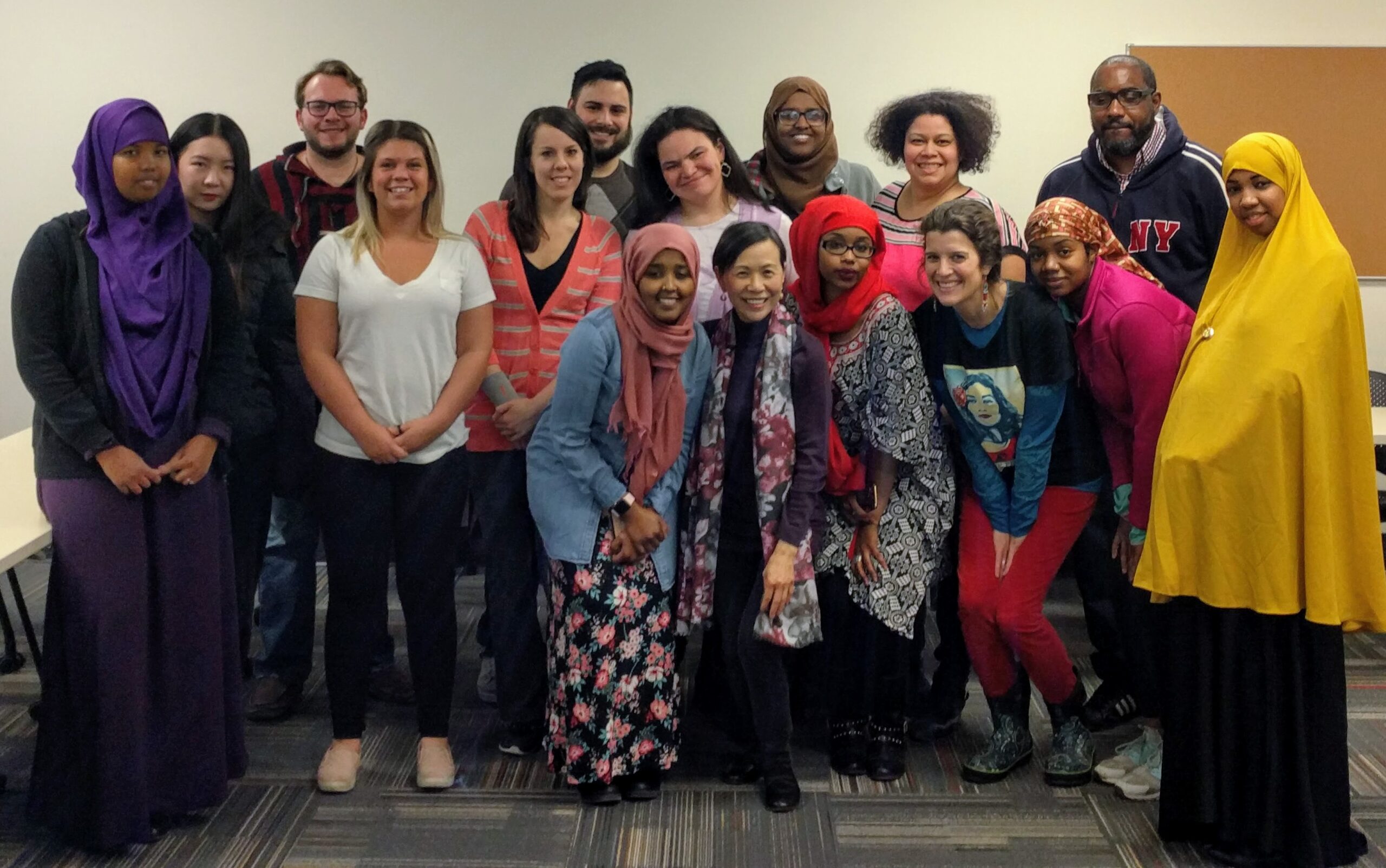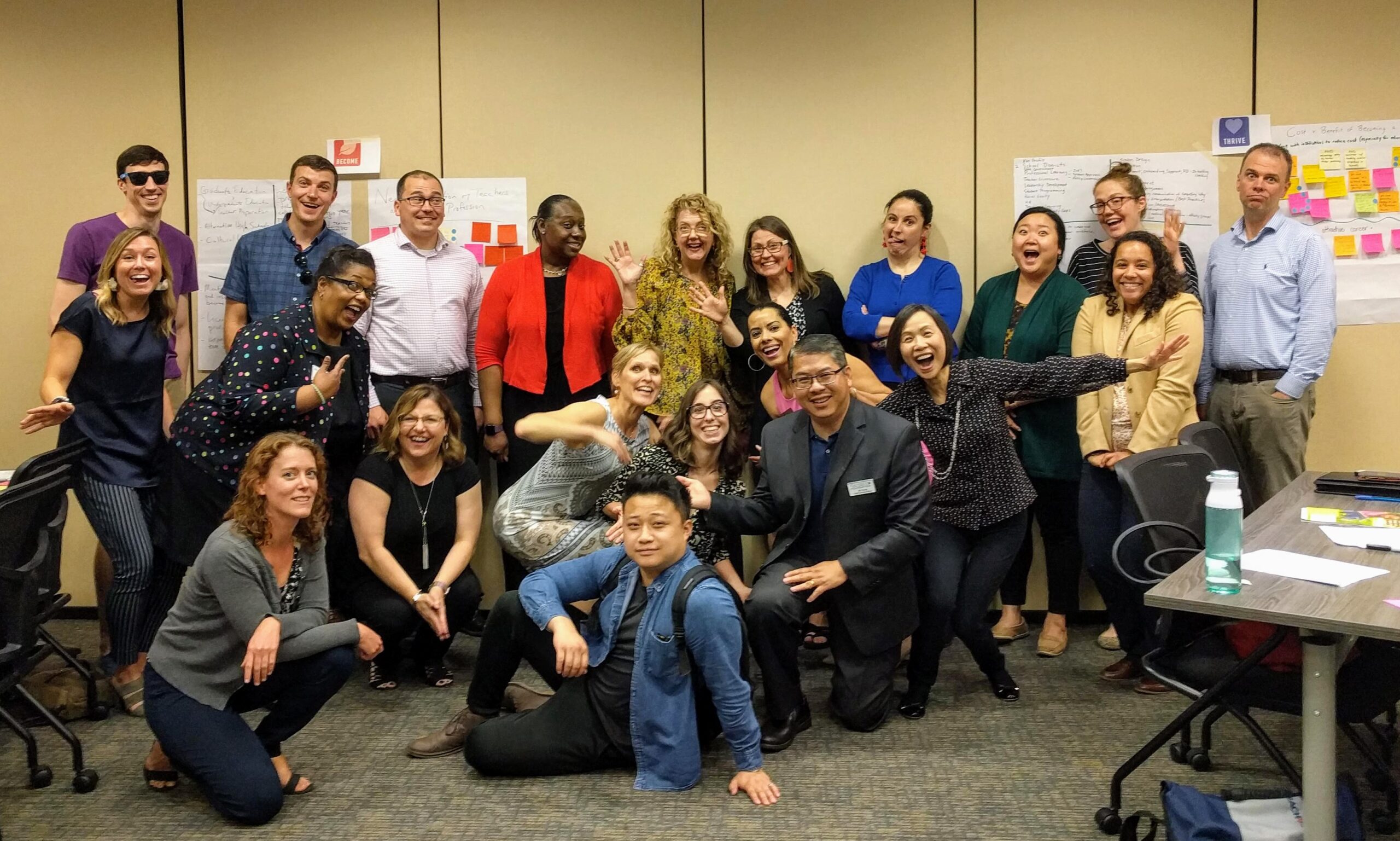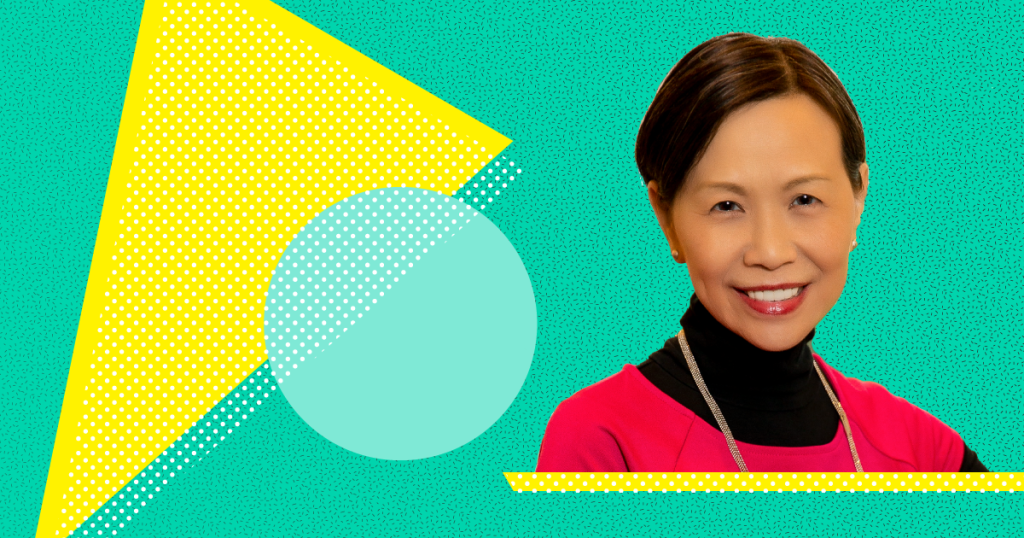This is the tenth post in a year-long blog series on teacher retention. In the previous entry, a Minneapolis teacher of color encouraged her colleagues to take pride in what they bring to the profession. In this entry, former Minneapolis teacher Dr. Rose Chu shares how mentorship was a necessary sustaining support throughout each stage of her teaching career.
Years ago, working as an engineer at Honeywell, I had a meeting with a career counselor—and I will never forget what she said: “No matter what my questions were, you couldn’t stop talking about the teenage girls you spend time with once a week [as part of a volunteer program at a local alternative school]. I cannot tell you what to do; all I can do is to reflect back what I heard about where your heart is.” I was speechless.
It’s now been more than 20 years since I made the fateful decision to leave my engineering profession to become a classroom teacher. The calling simply got too loud.
Making the transition to teaching
I first taught math and science part-time at Plymouth Youth Center (where I had originally volunteered), before joining a full-time alternative teacher licensure program designed for career changers like me—a partnership between Minneapolis Public Schools (MPS) and St. Cloud State University. The program was very practice-based; I was a building substitute teacher four days a week, and with my cohort met with university instructors each Friday to focus on foundations of education and pedagogical knowledge to teach content.
After earning my teacher license I became a middle school math teacher in Minneapolis Public Schools. It was the best professional pivot I ever made. For sure, I doubted myself in my first year teaching at what was then Windom Open School. As the third or fourth math teacher the students were meeting, I was certainly tested. Earning my PhD seemed like a piece of cake in comparison! Yet it was also the most fulfilling and heartfelt experience to be a teacher. The professional and personal growth I experienced strengthened my teacher self and the core of who I am—and how I “show up” in the world, especially for our students.
Mentorship: a necessary support for teachers
I am indebted to the fellow educators who served as my mentors while I was a teacher candidate and new teacher. They consoled, encouraged, and advised me. They created a safe space for me to vent, cry, and be frustrated. They were critical to my growth and survival.
I’m grateful to mentors like Frank, the key faculty supervisor and mentor during my intensive preparation program. During that year I was scheduled to try out a math lesson at Anwatin Middle School. I planned an elaborate lesson that connected math and history, with Frank scheduled to come observe me. Well, I hardly got through the lesson.
I was bawling during our coaching time because I felt I had failed. Even today, I can hear Frank’s encouragement: He saw students engaged in group work and learning. The connection between math and history was wonderful, he told me. Though new to teaching, I had designed a unit worthy of a whole week—not just one lesson! Without a doubt, Frank was instrumental in my journey to become a teacher and he modeled for me what it meant to be a caring mentor.
As a new teacher of record at Windom Open School, I was fortunate to be assigned a formal mentor, Anne, who visited and supported me through my first year. One memory really stands out: I was feeling discouraged over what seemed a lack of progress or response from my middle school students, academically and behaviorally. I began doubting my own efficacy.
Anne encouraged me to write down in my lesson plan book one positive thing I witnessed or experienced with students in each class period. That simple tip totally shifted my focus. I was no longer consumed by all the ways things were not working. Instead, I savored those precious moments with students throughout the day. Anne has forever impacted the trajectory of my life’s work in education.
How do we grow in our teacher self?
I was later invited to become a mentor-teacher to all new middle school math teachers in MPS, which prepared me for a chance opportunity and another professional pivot—to teach, advise, and mentor future urban teacher candidates, many of color, at the Urban Teacher Program of Metropolitan State University. I absolutely loved working with non-traditional candidates, who brought so much of their lived experiences to the space. I am a better teacher and a better person because of what they taught me.

We shared deep bonds of commitment in racial equity and justice. We wished to treat our urban learners and families differently. To be change-agents in a system lacking conditions for many of our learners to succeed and thrive, or, for that matter, for our teachers of color to succeed and thrive. Many of the candidates were already working in schools and we shared many teaching experiences—both heartaches and victories, barriers and support.
In the program we asked ourselves, “How do we grow in our teacher self so that we are resilient and strong?” “How do we know the power we have to impact the lives of our learners right in front of us?” “How do we honor the spirit and brilliance of our students every day?” Despite the ‘system’, despite the lack of respect in society, we can turn poison into medicine. We can find value in the most challenging of circumstances because our call to teaching is too critical for our students and their families, and for the world we imagine together.
Possibilities and hope
I realize the message of possibilities and hope has been consistent throughout all the time I have had the privilege to work with teachers. I will always stand up and speak up for the amazing work teachers do—day in and day out. I will interrupt narratives that blame teachers and demonize the profession.
Yes, teachers are human with different strengths. Teachers make mistakes and come with biases and socialized ideas that may be harmful to students. But if we start with the premise that no teacher enters the profession to intentionally harm students, the goal should be about creating the conditions and providing the necessary support—including mentorship—to ensure teacher success that will lead to student success.
Imagine a different narrative about the teaching profession, with different ideas, words, and images. Imagine a society where the teaching profession is held up with the same if not more value, respect, and prestige as other professions in healthcare, business, STEM, and so on. Imagine the possibilities.

Today, Dr. Rose Chu is leading TeachMN2020, a collective impact initiative at the Minnesota Education Equity Partnership to create and retain a critical mass of teachers of color in Minnesota who will impact all students, especially students of color. Rose also envisions a movement to elevate the teaching profession beginning with ImprintU.org.
If you wish to learn more about TeachMN2020 and become part of the solution, please contact Rose at rchu@mneep.org.
Found this useful? Sign up to receive Education Evolving blog posts by email.
We are grateful to the McKnight Foundation for their generous financial support for this series.


